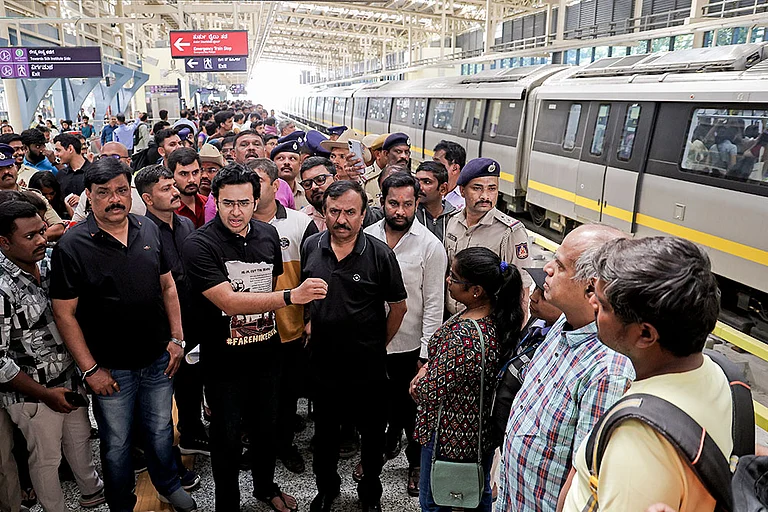The Jaswant Singh thesis is essentially the following: that India has no real strategic culture for a variety of reasons; it's had a respectable military tradition but the coming of the British and the nature of the nationalist movement under the Congress Party obscured this tradition, indeed undermined it by an emphasis on pacifism, non-violence, idealism, moralism, and a general fuddy-duddiness; that the armed forces and independent India's military operations have been muddled by all of the above plus ineffective institutions, incoherent decision-making, and timidity; that all this has culminated operationally in defence spending thats been inadequate, poorly used and often skewed in the wrong direction; and a force structure which appears to be calibrated for use against Pakistan when there are far more serious threats (China, counter-insurgency, for example). The defence of India is not just a matter of guns, training and doctrine though. In the new world disorder, other things count as well: a more imaginative foreign policy; economics; energy; environment-food-water; and demographic change (read illegal migrants). Finally, nuclear weapons count, and India must have them.
Defending India is lively when Singh's sonorous and well-modulated voice comes through, namely, in the first chapter on strategic culture and in the last chapter which looks at future trends. The postscript which was written after the May 1998 tests also draws attention for obvious reasons. The middle chapters are much less attractive to the general reader who will have to wade through, first, a largely unexceptionable history of the Indian armed forces, and, second, a technical and rather dry analysis of defence spending and the mismatch between spending, threats and force structure.
What about the basic accusation though: does India lack a strategic culture, has independent India mismanaged external relations and security? This is an increasingly popular view amongst the Indian elite. No ones been able to define strategic culture very convincingly, so the first I accuse is a little woolly. However, if strategic culture means some identifiable mindset regarding threats to national survival/welfare and the means of combating those threats, then its hard to see how Indians could not have had a strategic culture. If one means the existence of a canon of great military thinkers, then India does lack a strategic culture. But this is not surprising. A strategic culture arises in an environment in which war is a constant shadow, in which war is total, ie. involves the vast mass of people in a society. This was rarely the case in India, and certainly not since the British took charge. The shadow of wars been much larger since 47, but total war, fortunately, was never a possibility, not even with China and Pakistan.
As for the accusation that Nehru and Nehruvians mismanaged India's defence, this goes against the historical record. In a view that's gaining ground, Nehru and his followers appear, at best, as naive idealists not suited to the nasty hurly-burly of an anarchic world, and, at worst, as irresponsible. If that's so, how do we account for the fact that India is virtually the only Asian country which has not fought an all-out internal or external war? Yes, we lost a war - against China - and drew one - against Pakistan; but that's not too bad a record. And what did we lose to China? The Aksai Chin, where not a blade of grass grows! How is it also that this a-strategic and anti-military Nehru and his ilk started the nuclear programme and invested in an arms industry? How is it that this same Nehru could say as early as 44, in The Discovery of India, that Britain was washed up, the US and Soviet Union would divide up the world, and that the Asia-Pacific would be the new centre of world politics/economics? Defending India has done one thing clearly: its presented one strategic vision for India in the years to come. In doing so, it'll allow others to articulate their disagreement/own vision. A full-blooded debate should ensue.


























